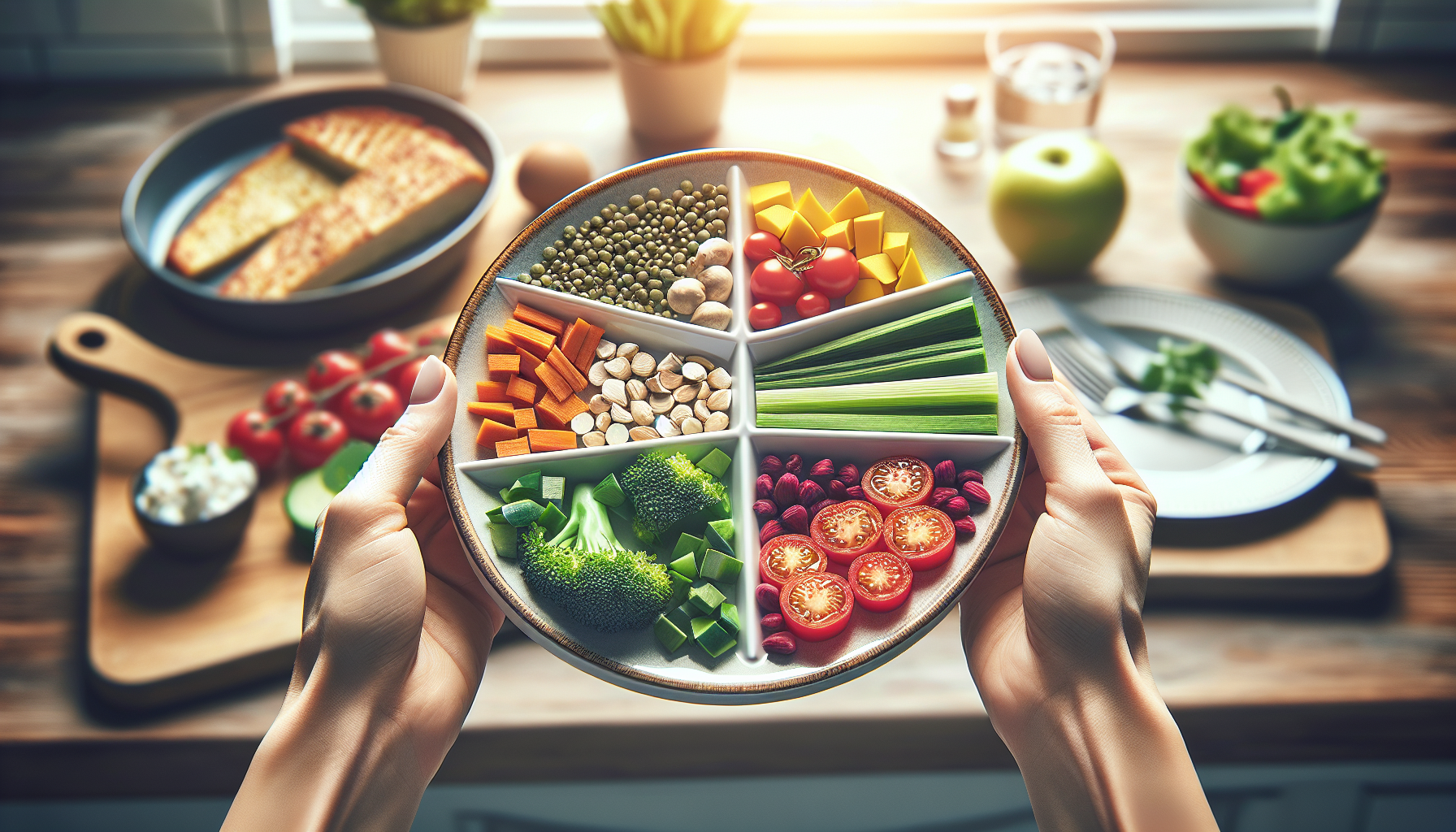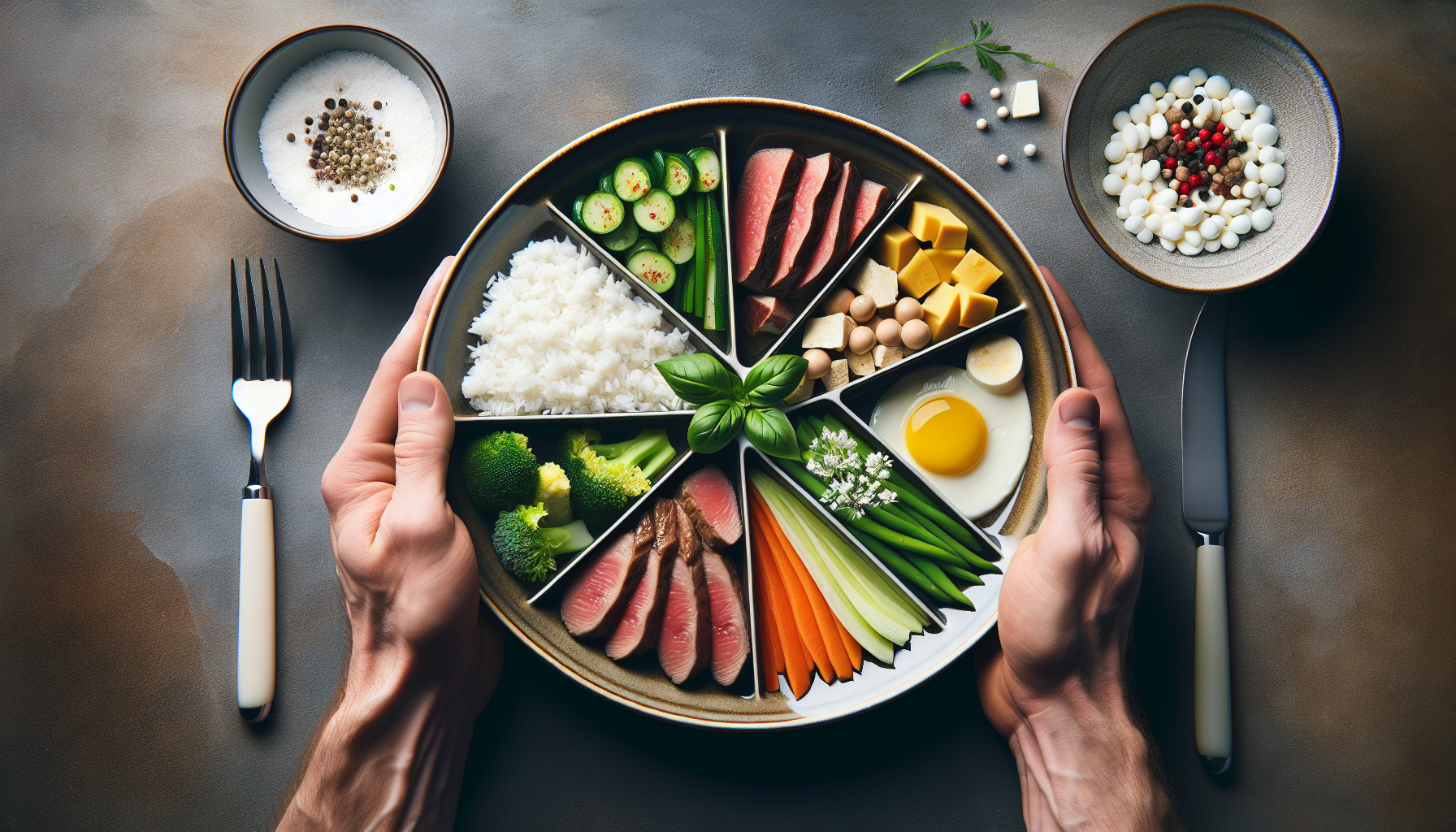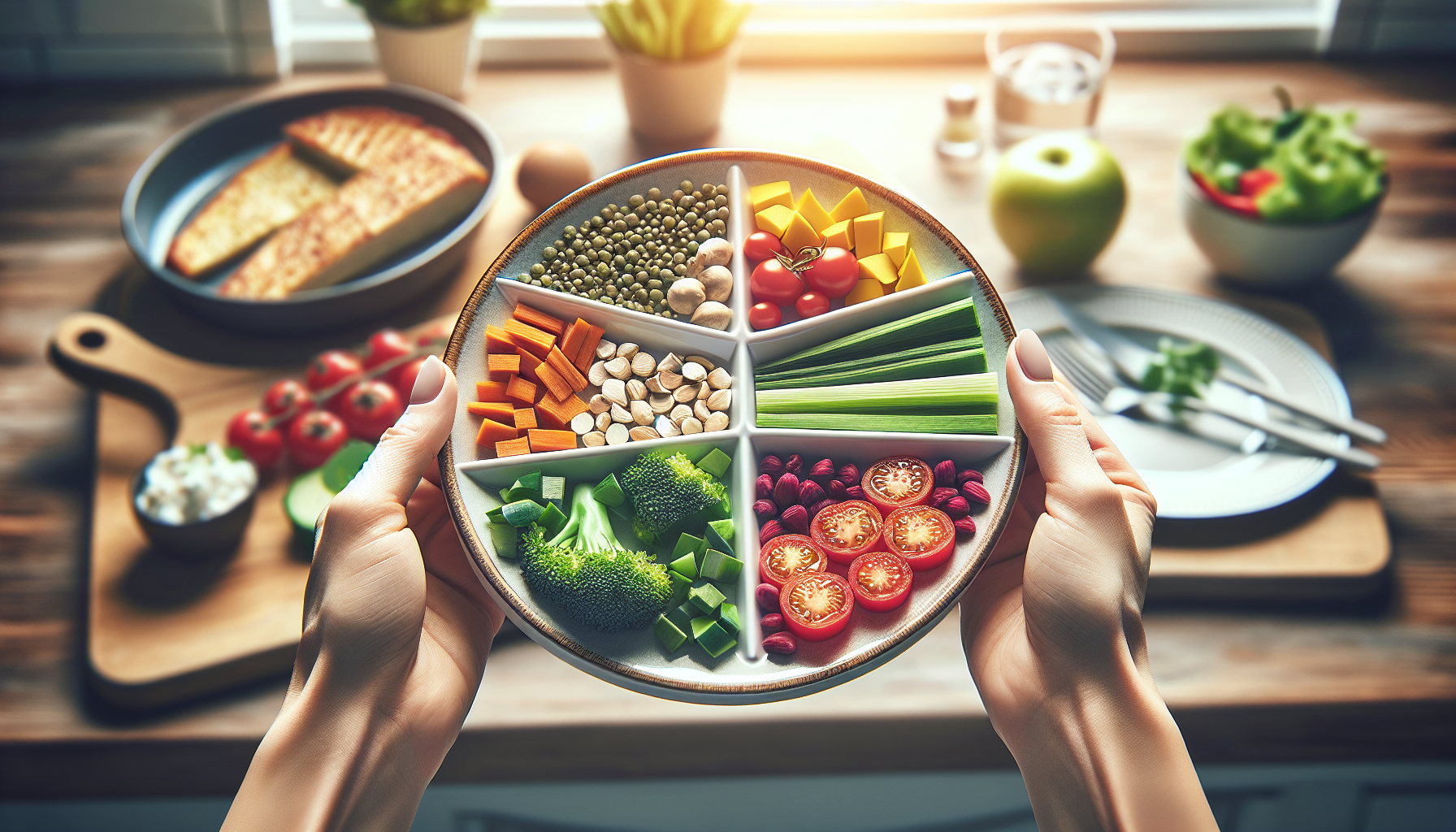Are you tired of always cooking too much food and ending up with uneaten leftovers? In a world where portion sizes seem to be continually increasing, it can be challenging to control how much we eat. However, a simple solution may be found in the act of cooking solo. When you’re the only one enjoying the meal, you become more aware of the ingredients you use and the portion sizes you cook. In this article, we explore how cooking alone can lead to better portion control and ultimately promote healthier eating habits. So put on your apron, turn up the stove, and discover the benefits of cooking solo with us.

The Influence of Cooking Solo on Portion Control
When it comes to portion control, cooking solo can have a significant impact on your ability to manage your food intake. Whether you live alone or simply enjoy cooking for yourself, there are many benefits and challenges that come with preparing meals for one. In this article, we will explore how cooking solo affects portion control, delve into the psychology behind this phenomenon, discuss the ways in which cooking solo can help with portion control, and provide some practical tips for cooking solo and practicing portion control. So, let’s dive in!
Benefits of Cooking Solo
Cooking solo offers a multitude of advantages when it comes to portion control. First and foremost, cooking for yourself allows you to have complete control over the ingredients you use, ensuring that you opt for healthier options and avoid unnecessary additives or excess salt and sugar. Moreover, when you cook solo, you can experiment with different flavors, spices, and cuisines, allowing you to create meals that are both nutritious and delicious, tailored to your specific taste preferences.
Additionally, cooking solo empowers you to increase your awareness of portion sizes and encourages you to listen to your body’s hunger and fullness cues. Rather than relying on external cues or portion sizes dictated by others, you have the freedom to adjust your portions based on your individual appetite and needs. This heightened sense of control over your food intake can lead to healthier eating habits and a better understanding of portion sizes.
Challenges of Cooking Solo
While cooking solo has its benefits, it also presents some challenges when it comes to portion control. Without the accountability of cooking for others or the natural distribution of a large family meal, it can be easy to overestimate the quantity of food needed for a single serving. This can result in larger portions being cooked and consequently consumed. Moreover, cooking solo may lead to a lack of variety in your meals, as it can be challenging to prepare smaller quantities of a wide range of ingredients. This could potentially result in monotonous eating habits and a limited nutrient intake.
The Psychology of Portion Control
To understand the impact of cooking solo on portion control, it is important to delve into the psychology behind our eating behaviors. One of the main psychological factors that influences portion control is portion distortion. Portion distortion refers to the tendency to underestimate the amount of food we consume when presented with larger portion sizes. This phenomenon is especially prevalent when eating out at restaurants or ordering takeout, where portion sizes tend to be significantly larger than what is necessary for a balanced meal.
Another crucial aspect of portion control is the role of visual cues. Our perception of portion sizes is often skewed by external cues such as the size of the plate or bowl we are using, rather than relying on internal cues from our body. Research has shown that using larger plates and bowls can lead to an increase in portion sizes, as we are inclined to serve ourselves more food to fill up the empty space. This tendency can result in overeating and a lack of portion control.

How Cooking Solo Helps with Portion Control
While cooking solo poses its challenges, it also provides several ways to overcome these obstacles and improve portion control. Firstly, cooking solo increases your awareness of portion sizes. Without the influence of others and their servings, you have the opportunity to truly understand how much food your body needs to feel satisfied. As you become more attuned to your own hunger and fullness signals, you can adjust your portion sizes accordingly, leading to a healthier and more balanced diet.
Furthermore, cooking solo gives you complete control over the ingredients you use in your meals. This allows you to prioritize nutritious options and tailor your meals to meet your specific dietary needs. By selecting fresh, whole foods and avoiding processed ingredients, you can ensure that your meals are packed with essential nutrients while keeping portion sizes in check.
Additionally, cooking solo promotes mindful eating. With no distractions from others, you can fully engage with your food and savor each bite. Mindful eating involves paying close attention to the taste, texture, and aroma of your meal, as well as your body’s signals of hunger and fullness. By practicing mindful eating, you can enjoy your meals more fully, prevent overeating, and develop a healthier relationship with food.
Tips for Cooking Solo and Practicing Portion Control
To make the most of your cooking solo experience and ensure proper portion control, here are some practical tips to consider:
1. Meal Planning and Prepping
Planning your meals in advance can help you maintain portion control and avoid the temptation to reach for unhealthy convenience foods. By creating a weekly meal plan, you can ensure that you have all the necessary ingredients on hand and cook the appropriate portions for each meal. Additionally, prepping your meals in advance can save time and make it easier to stick to your desired portion sizes.
2. Using Smaller Plates and Bowls
As mentioned earlier, the size of our plates and bowls can greatly influence our perception of portion sizes. By opting for smaller plates and bowls, you naturally limit the amount of food you serve yourself. This visual cue can help you maintain portion control without sacrificing satisfaction.
3. Measuring Ingredients
When cooking solo, it can be easy to estimate ingredient quantities, leading to imprecise portion sizes. To avoid this, make use of measuring tools, such as measuring cups and spoons, to accurately portion out your ingredients. This ensures that you are adhering to appropriate serving sizes and helps you avoid overeating.
4. Avoiding Distractions
While eating alone can be a peaceful experience, it is essential to avoid distractions such as watching TV or scrolling through your phone while eating. Engage fully with your meal, paying attention to the flavors and textures, and listen to your body’s cues of hunger and fullness. By eating mindfully and avoiding distractions, you can better regulate your portion sizes and foster a healthier relationship with food.
The Importance of Self-Care and Healthy Habits
Cooking solo and practicing portion control go hand in hand with prioritizing your health and implementing healthy habits. Portion control is not just a short-term strategy for weight management; it should be viewed as a long-term commitment to your overall well-being. By being mindful of your portion sizes and cooking for yourself, you have the power to nourish your body with wholesome foods and maintain a balanced and nutritious diet.
When you prioritize your health through cooking solo and portion control, you are taking an active role in maintaining your physical and mental well-being. By cooking for yourself and being conscious of the amounts you consume, you can better manage your weight, reduce the risk of chronic diseases, and foster a positive relationship with food.
In conclusion, cooking solo can greatly influence portion control and positively impact your overall health. Through increased awareness, control over ingredients, and practicing mindful eating, you can develop healthier habits and maintain a balanced diet. By implementing the tips mentioned above and prioritizing your health, you can embrace cooking solo as an opportunity for self-care and long-term well-being. So, get into the kitchen, explore new flavors, and enjoy the benefits of cooking solo on portion control!
